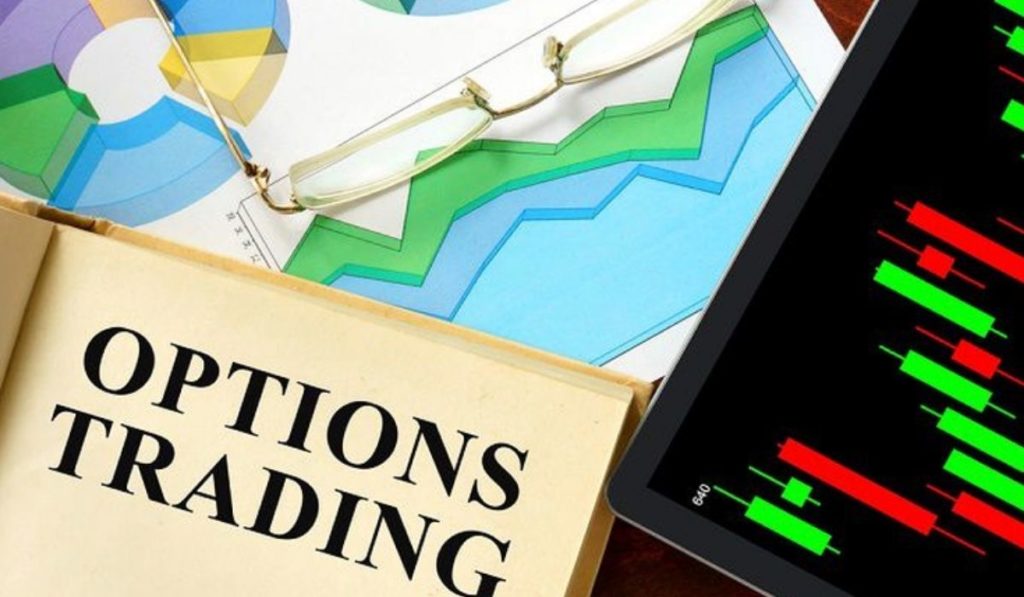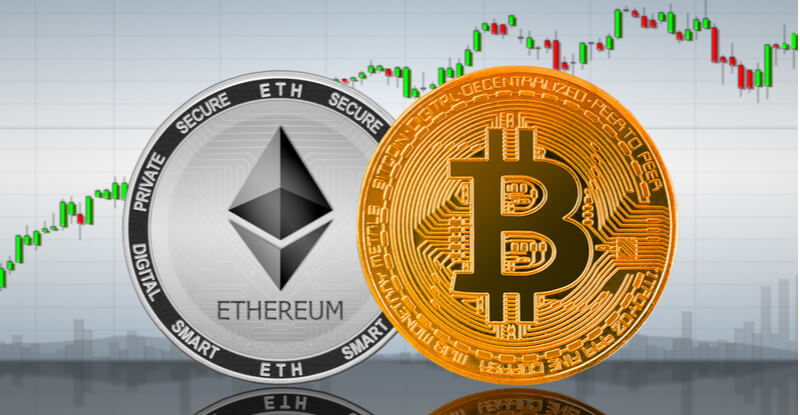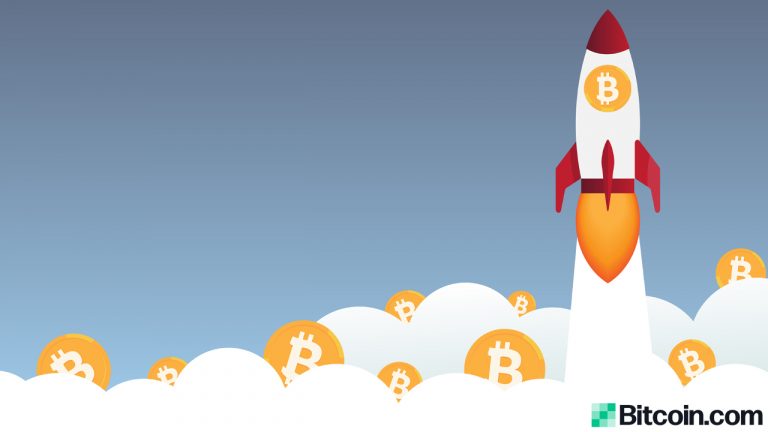2022-5-6 18:52 |
What are options contracts?
In an options contract, the buyer has the right to buy or sell an asset at an agreed-upon price and date; but unlike futures contracts, they are not obligated to settle, i.e. they have the option to not end up buying or selling.
When the buyer, also known as the holder, wants the option to buy an asset, this action is called a call option, and alternatively if they want the option to sell the asset, it is called a put option. A buyer would purchase a call option if they expect the price of the asset to increase, and a put option if they expect its price to decrease.
In options contracts there are two primary players: the buyer and the seller. The seller writes the contracts (the options) for calls or puts and sells them to the buyer for a premium (a fee), and it is up to buyer if they want to exercise their option or not. So while entirely optional, these contracts aren’t free as they bear a cost, which is mostly based on the expiration date and the strike price.
The strike price is the price of the asset at which it will be bought or sold, and is a very important factor for the buyer, as an appropriate price is crucial for making a profit.
Another factor that helps determine the price of a premium is the implied volatility of the asset; generally, the more volatile an asset is, the higher the premium is for the option.
Terminology: Buyer: The one who buys the options contract to buy or sell an asset at a specific price and date.Seller: The one who sells the options contract to buy or sell an asset at a specific price and date.Contract: The agreement that gives the buyer the option and the seller the obligation* to buy or sell at a specific price and date.Premium: The cost of the contract/option.Strike Price: Agreed-upon price of the underlying asset.Call Option: The option where the buyer can purchase the asset at a specific price and date from the seller.Put Option: The option where the buyer can sell the asset at a specific price and date to the seller.*If the buyer decides to exercise their option.
Note: While referred to as buyer and seller, in this context, it is referring to who buys the options contracts and who sells them. Both the buyer and the seller can buy and sell assets.
What are American options?All options have an expiration date; American options allow the buyer to exercise their option anytime before the date, whereas European options can only be exercised at or near the expiration date. The geographical location of the traders don’t determine what kind of options they can buy or sell, rather, it depends on the trading platform they are using.
What are options contracts used for?The contracts are what give the buyer their right (to buy or sell) and the seller their obligation (to buy or sell), which is why buyers pay a premium to receive these contracts; they are paying for the option. Without these contracts, the trades themselves wouldn’t work as they wouldn’t make any financial sense to either party.
For example: In a call option, the buyer expects the price of the asset to increase, and suppose it does, they would exercise their option and buy the asset at the strike price from the seller, and then sell it on the market for a profit.
However, without any contracts, the seller would have no obligation or reason to sell their assets to the buyer for a lower price.
How is the premium calculated when trading Bitcoin options?The premium is determined by four major factors: The current price of Bitcoin, the strike price, the time until expiry date and the volatility of the market. Here’s a table that illustrates how these elements affect the premium of both call options and put options[1]:
Call Options PremiumPut Options PremiumRising Asset’s PriceIncreasesDecreasesFalling Asset’s PriceDecreasesIncreasesHigher Strike PriceDecreasesIncreasesLower Strike PriceIncreasesDecreasesIncreasing TimeIncreasesIncreasesDecreasing TimeDecreasesDecreasesHigh VolatilityIncreasesIncreasesLow VolatilityDecreasesDecreases How do Bitcoin options work and should you trade them?In terms of core function, Bitcoin options on Binance work as described above, with a few key notes[2]:
Expiration date: The available expiration dates for trading Bitcoin options on Binance are: 5m, 10m, 30m, 1hr, 4hr, 8hr, 12hr, 1d.Underlying asset: Since the underlying asset is BTC, therefore the trading quantity is defined in BTC.Premium: The premium is paid in USDT, and is deducted from the Binance Futures wallet balance.Options: The options on Binance are American options.In order to buy options on Binance, you will need a Binance Futures account, which can be easily activated. Once a Binance Futures account is created, you will need to transfer funds into your Futures Wallet from your Exchange Wallet, after which you can begin buying options.
Note: The Binance Options account is tied to the Binance Futures account, so it is important to exercise caution with options trading if you have open futures positions.
Visit Binance Now
Should you trade them?
It depends. Usually, options are used for risk management. So, in the world of cryptocurrency, in this case Bitcoin, options could benefit miners for example, since by buying puts they can cover their losses in case the price of Bitcoin goes down. If you have invested in Bitcoin in one way or another, you can find an options strategy that could help protect your investment.
Ohterwise, if you want to do speculative trading, then buying options is a safe way to start since you are not obligated to buy or sell, therefore, your losses are limited to the premiums you pay. In a way, the experience you gain is paid in premium fees.
What are the benefits of trading Bitcoin options?Buying options is not risk-free, nor are they easy to fully comprehend, but they do offer some benefits:
Options contracts are relatively lower risk, as they don’t force the buyer to buy or sell the underlying asset.They allow for multiple trades, which can result in various interesting trading strategies.Lastly, options contracts are flexible, and thus can profit from different market trends.What is unique about cryptocurrency options like Bitcoin is that someone who mines BTC can either protect their assets by buying put options, or double down on their earnings by buying call options.
How to calculate return on investment (ROI)?Your return on investment is equal to the profit gained from the trade minus the premium paid.
For example*: You bought a call option for 1 Bitcoin at the strike price of 35,000 USDT with an expiration date of an hour, and a premium of 5 USDT. Within half an hour, the price of Bitcoin reaches 35,100 USDT, and you decide to settle your contract. You buy the BTC from the seller at the strike price of 35,000 USDT and immediately sell it for 35,100 USDT (this is done automatically by Binance once you confirm to settle).
Your net profit would therefore be calculated as such:
35,100 (sales price) – 35,000 (strike price) = 100 (gross profit)
100 (gross profit) – 5 (premium/expense) = 95 (net profit)
You made 95 USDT
*The values in this example are purely fictional and do not reflect the values, costs or fees of Binance Futures.
Can Binance option traders be a buyer or a seller?Currently, Binance option traders can only be buyers, this is because Binance is the only seller[3].
Are options gambling?While there are parallels between options and gambling, there is a significant difference that sets the two apart. It is true that both gambling and options have risk to reward ratios, and strategies that are centered around them, but that is where the similarities end.
There are a very finite number of things you can learn to optimize your odds in traditional gambling, but in the world of stocks and cryptocurrency, research into the ever-changing market can give you valid reasons to go one way or the other; but since the market is too complex, no amount of research can outweigh the role luck plays in options.
What is the underlying asset of Binance options?The underlying assets of Binance options currently consist of[3]: BTCUSDT, ETHUSDT, XRPUSDT, BNBUSDT, LINKUSDT and LTCUSDT.
What are some alternative platforms where I can trade Bitcoin options?Here are some alternative platforms that also offer trading Bitcoin options:
Deribit: Deribit is a platform that offers trading options for Bitcoin and Ethereum, however, these options are European options, meaning they can be executed only on the date of expiry.Visit Deribit Now
Ledgerx: Here, users can buy Bitcoin options, but unlike Binance, these too are European options. The contracts on Ledgerx are not exercised automatically unlike other platforms.Quedex: Quedex also offers European options for BTC, where expirations are either quarterly or customized.Read also our Binance’s topic articles:
Binance Staking Review – How to Stake Coins on Binance?Binance Coin (BNB) Price PredictionBinance Tax Calculators – 3 Steps to Calculate Binance TaxesBest Wallets for Binance Coin (BNB) – Beginner’s GuideBinance Crypto Debit Card Review – When Do We Get It?Binance Alternatives & CompetitorsBinance Earn Review – How To Use Binance As a Savings AccountThe post How to Trade Binance Options | Binance Options Guide appeared first on CaptainAltcoin.
origin »Bitcoin price in Telegram @btc_price_every_hour
Binance Coin (BNB) на Currencies.ru
|
|














